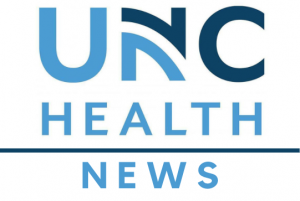In the last month, there has been an outbreak of a novel coronavirus (2019-nCoV) originating in Wuhan, China. The key strategies for prevention of infectious disease transmission including novel coronavirus are Identify, Isolate and Inform. More information may be found at the link in the headline.

Identify: All persons with symptoms of suspected 2019-nCoV or other respiratory infection (e.g., fever, cough) should adhere to respiratory hygiene/cough etiquette and hand hygiene. Signs, masks and hand hygiene should be available in strategic locations.
Isolate: Patients with symptoms of suspected 2019-nCoV or other respiratory infection (e.g., fever, cough) should be isolated in a private room with the door closed. Healthcare providers should obtain a detailed travel history for patients being evaluated with fever and/or acute respiratory illness. Current case definition for patients under investigation of novel coronavirus: https://www.cdc.gov/coronavirus/2019-nCoV/clinical-criteria.html.
Inform: Healthcare providers should immediately notify both infection prevention personnel, and their local or state health department for any patients under investigation of novel coronavirus for additional infection prevention guidance (Use of Special airborne/contact precautions and Lab instructions). UNC Medical Center Infection Prevention can be reached 24/7 at 919-216-2935. NC State Health Department can be reached 24/7 at 919-733-3419.
Special Considerations for patients under investigation of novel coronavirus:
Special airborne/contact precautions for patients under investigation of novel coronavirus: Patients under investigation for novel coronavirus will be placed in an airborne isolation room as soon as possible. Healthcare personnel entering the room should use contact precautions (gown and gloves) and airborne precautions (N-95 respirators) with eye protection (e.g., goggles or a face shield).
Lab instructions for novel coronavirus: At this time, diagnostic testing for 2019-nCoV is only conducted by the CDC. UNC’s respiratory pathogen panel does not detect the 2019-nCoV. PRIOR to specimen collection for patients under investigation, please notify the Microbiology Laboratory (984-974-1805) and Infection Prevention designee (919-216-2935). Specimens from patients under investigation should be hand-delivered to the Clinical Microbiology Laboratory as soon as possible after collection. The pneumatic tube should not be used to transport any specimen from patients suspected of having 2019-nCoV. Guidelines for specimen collecting, handling, and testing clinical specimens for 2019-nCoV can be found at https://www.cdc.gov/coronavirus/2019-nCoV/guidelines-clinical-specimens.html.
Disinfection for novel coronavirus: All of our FDA-approved hospital antiseptics (e.g., alcohol based hand rubs, CHG) and EPA-registered surface disinfectants (e.g., Sani wipes) are effective against novel coronavirus (and all respiratory viruses).
Staff preparedness measures:
For managers of areas with airborne isolation rooms, ensure preparedness for managing patients who need airborne isolation:
Managers of areas with airborne isolation rooms should ensure employees are appropriately fit tested to wear N95 respirators in accordance with the UNC Medical Center policy: Respiratory Protection Program
Managers: A special department heads meeting is being planned for next week on the topic of novel coronavirus. Details will be shared once they are finalized; please be on the lookout for an announcement.
What can you do to prevent any type of respiratory virus transmission in the hospital?
- Clean in, Clean out of all patient care areas and reinforce good hand hygiene habits by offering real-time peer feedback https://cleanhands.unch.unc.edu/
- Visitors must be free of communicable diseases. Visitors exhibiting obvious signs of illness must be excluded from visiting. https://unchealthcare-uncmc.policystat.com/policy/7426864/latest/
- Healthcare personnel who are sick with any respiratory tract infections should follow Occupational Health policy for staying home when sick: https://unchealthcare-uncmc.policystat.com/policy/6263734/latest/
HCP who develop respiratory symptoms with fever (>100.4°F or >38°C) but are not a patient under investigation for novel coronavirus:
- HCP should be instructed not to report to work, or if at work, to promptly notify their supervisor and leave work.
- HCP are excluded from work until at least 24 hours after they no longer have a fever (without the use of anti-pyretic [fever-reducing medicines] such as acetaminophen, ibuprofen, or aspirin).
- Upon returning to work, HCP should report to their supervisor. If symptoms such as cough and sneezing are still present upon return, HCP should wear a properly fitted surgical mask (nose and mouth covered) in patient care areas and adhere to respiratory etiquette with frequent hand hygiene. If the HCP is unable to adequately contain their secretions with a properly fitted surgical mask they will be excluded from work until resolution of symptoms and/or ability to contain secretions.
HCP who develop respiratory symptoms without fever:
- If symptoms such as cough and sneezing are present, HCP should wear a properly fitted surgical mask (nose and mouth covered) in patient care areas and adhere to respiratory etiquette with frequent hand hygiene. If the HCP is unable to adequately contain their secretions with a properly fitted surgical mask they will be excluded from work until resolution of symptoms and/or ability to contain secretions.
Additional information and resources can be found: